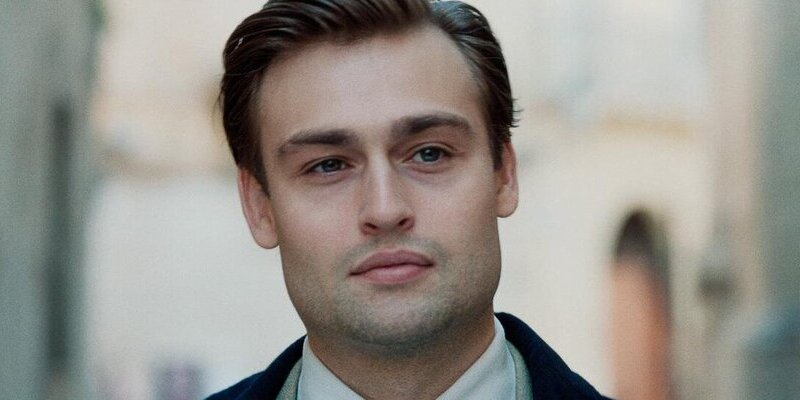
Review by
Eric Hillis
Directed by: Michael Winterbottom
Starring: Irina Starshenbaum, Douglas Booth, Harry Melling, Ian
Hart, Aury Alby

Prior to watching the Michael Winterbottom directed film that
bears her name, I knew nothing about Shoshana Borochov, the Russian
writer turned Israeli freedom fighter. Winterbottom and his co-writers
Laurence Coriat and Paul Viragh haven't exactly delivered
a biopic but rather a romantic thriller that focusses on Shoshana's
relationship with a British cop. It has no more depth than one of those
Miami Vice plotlines where Crockett would fall for the
girlfriend of the mobster he's trying to take down.

The movie begins in British mandated Palestine in 1938. A voiceover
from Shoshana - played by the exciting new Russian actress
Irina Starshenbaum, whom western audiences might know from Kirill
Serebrenikov's
Leto
– fills in the details of how Palestine ended up in the hands of the
British, sparking revolutions from both the Arab and Jewish populations.
Working as a journalist in Tel Aviv, Shoshana begins dating Tom Wilkin
(Douglas Booth), a high-ranking British cop tasked with
disrupting the right wing Jewish terrorist group the Irgun. Shoshana is
herself a member of the left-leaning Haganah, who while striving for the
same outcome, oppose the political philosophy and violent warfare of the
Irgun.
Shoshana and Tom's relationship becomes strained when Superintendent
Geoffrey Morton (Harry Melling) is assigned to lead Tom's unit.
Morton was known for his heavy-handed and legally dubious means of
battling Arab opponents and when he employs similar tactics against the
Jews, Shoshana finds herself withdrawing from Tom.

Though it boasts her name and often features her voiceover narration,
Shoshana is really the second lead as the film spends more time with
Tom. Perhaps because it's a product of British filmmakers, the movie
seems more concerned with the question of how the British keep the peace
in this fraught situation rather than the Jewish fight to rid them from
their ancestral homeland. Tom is portrayed as a sympathetic "good cop"
who opposes Morton's ways and his thinly veiled anti-semitism, but he's
still a key figure in the occupation of someone else's land. The level
of Shoshana's involvement with terrorism/freedom fighting is left
largely ambiguous, as though the film is concerned that a 21st century
audience might not have an appetite for sympathising with her cause. At
one point Shoshana makes a revelation regarding just how deeply involved
with terrorism/freedom fighting she really is. It makes us wonder if
we've missed a reel of the film, as it's difficult to understand why
Winterbottom would choose to keep all of this offscreen.
There's little of interest in the romance between Shoshana and Tom,
which is largely rendered in blandly written scenes in which the former
insists a Jewish girl and a British boy don't belong together in 1930s
Palestine. The thriller subplot has promise but probably requires a
director more accustomed to genre cinema than Winterbottom. As Avraham
Stern, the leader of the Irgun, Aury Alby is a menacing presence,
but the complete lack of nuance to his villainy would be better suited
to a less complex subject.

The most interesting aspect of Shoshana is the title
character's transformation from a woman who believes her people can
achieve their aims through peaceful means to the cold-hearted figure we
see gunning down Arabs in the film's final image. Unfortunately none of
this is actually portrayed onscreen. Near the end Winterbottom delivers
a striking match cut that transitions from Shoshana walking in civvies
to her clad in combat fatigues with a rifle over her shoulder. We're
left to wish we could see the unmade film that exists between the two
images.

Shoshana is on Prime Video UK/ROI now.
